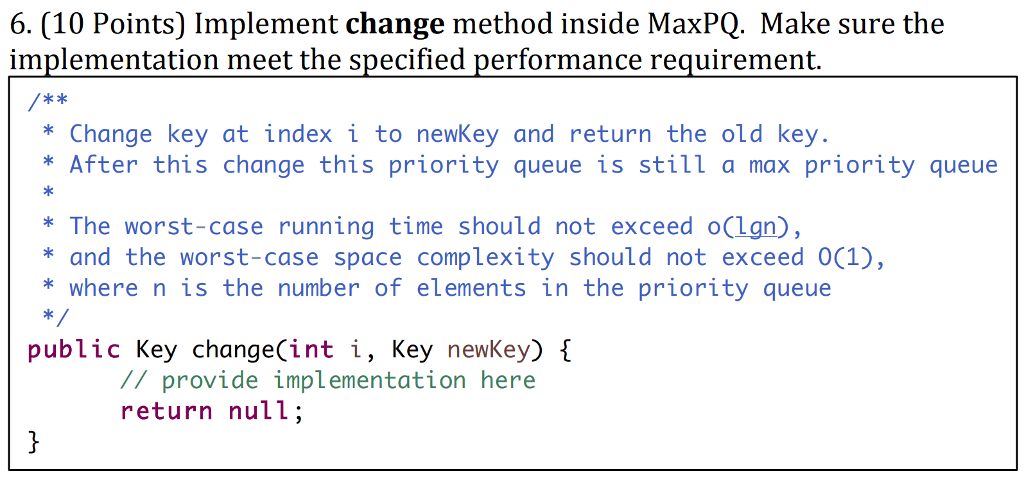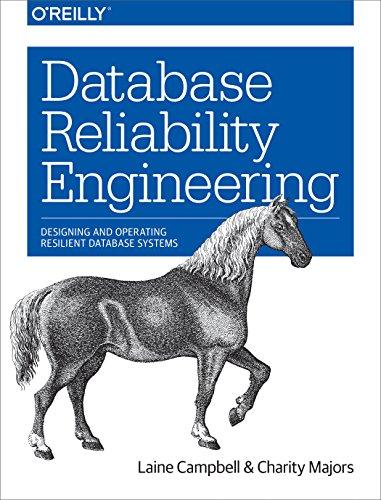Question
package assignment2; public class MaxPQ > { private static int DEFAULT_CAPCITY=10; // heap-ordered complete binary tree // in pq[1..N] with pq[0] unused private Key[] pq;

package assignment2;
public class MaxPQ
private static int DEFAULT_CAPCITY=10;
// heap-ordered complete binary tree
// in pq[1..N] with pq[0] unused
private Key[] pq;
private int size = 0;
public void insert(Key v) {
pq[++size] = v;
swim(size);
}
public boolean isEmpty() {
return size == 0;
}
public int size() {
return size;
}
public Key max() {
if (size==0) {
return null;
} else {
return pq[1];
}
}
public Key delMax() {
if (size==0) {
return null;
} else {
Key max = pq[1]; // Retrieve max key from top.
swap(1, size--); // Exchange with last item.
pq[size + 1] = null; // Avoid loitering.
sink(1); // Restore heap property.
return max;
}
}
/**
* Change key at index i to newKey and return the old key.
* After this change this priority queue is still a max priority queue
*
* The worst-case running time should not exceed o(lgn),
* and the worst-case space complexity should not exceed O(1),
* where n is the number of elements in the priority queue
*/
public Key change(int i, Key newKey) {
// provide implementation here
return null;
}
// bottom-up repheapify
private void swim(int k) {
while (k > 1 && isLessThan(pq[k/2], pq[k])) {
swap(k/2, k);
k = k/2;
}
}
// top-down repheapify
private void sink(int k) {
while (2*k
int j = 2*k;
if (j
j++; // j is the index of the largest children
if (!isLessThan(pq[k], pq[j]))
break;
swap(k, j);
k = j;
}
}
public MaxPQ() {
this(DEFAULT_CAPCITY);
}
@SuppressWarnings("unchecked")
public MaxPQ(int maxN) {
pq = (Key[]) new Comparable[maxN + 1];
size = 0;
}
@SuppressWarnings("unchecked")
public MaxPQ(Key[] a) {
pq = (Key[]) new Comparable[a.length + 1];
for (int i=0; i insert(a[i]); } } private void swap(int i, int j) { Key t = pq[i]; pq[i] = pq[j]; pq[j] = t; } private boolean isLessThan(Key v, Key w) { return v.compareTo(w) } Key[] getKeys() { return pq; } }
Step by Step Solution
There are 3 Steps involved in it
Step: 1

Get Instant Access to Expert-Tailored Solutions
See step-by-step solutions with expert insights and AI powered tools for academic success
Step: 2

Step: 3

Ace Your Homework with AI
Get the answers you need in no time with our AI-driven, step-by-step assistance
Get Started


